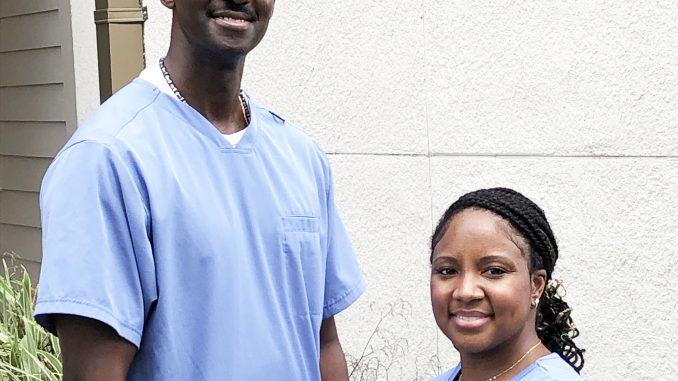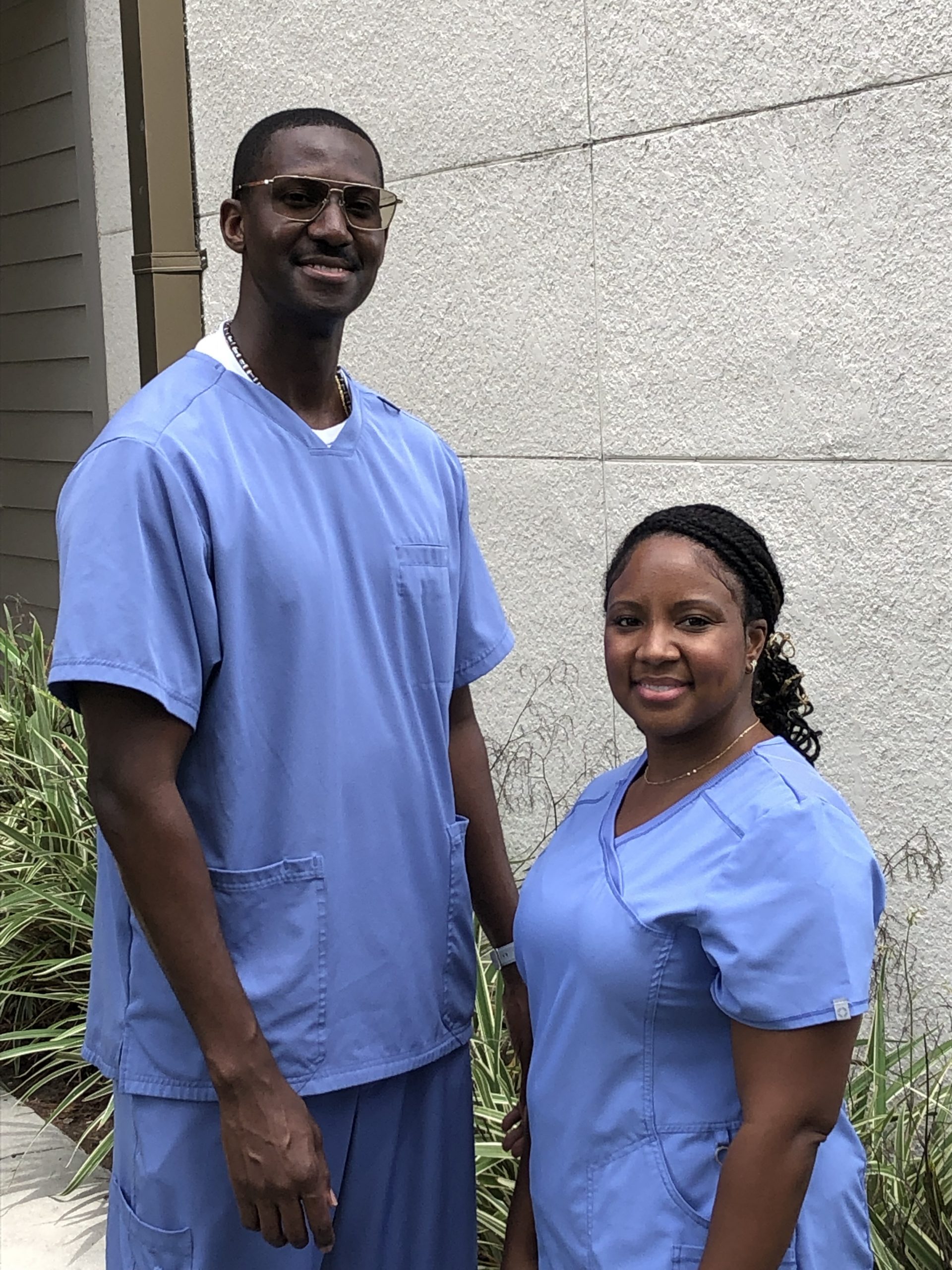
“There’s got to be another way to make a living.” Corey Billings, a Registered Nurse, reflects on a statement he made to his wife after returning home from another grueling day on the COVID floor. She understands the sentiment far too well. Kristi is also a Registered Nurse at the same Jacksonville hospital. When her floor is overstaffed, she sometimes ends up in the same COVID unit where her husband works.
Going back to the early days of the COVID-19 pandemic, Kristi recalls an extremely uneasy feeling about caring for patients. “It was frightening to some degree, a large degree.” Yet, as a nurse with 14-years under her scrubs, she continues to put her cares, fears, and feelings of stress aside. “I just always think about this shift … take care of these patients because you can’t worry about what’s going to happen later or tomorrow. Because it’s just too much.”
 Corey appears reflective during the interview, often looking up and to the side as Kristi speaks. In some ways, his burden is even heavier. The 20-year healthcare veteran is also the Charge Nurse on the COVID floor. “Not only am I dealing with the needs of current patients but also having to balance the anxiety of staff,” he said.
Corey appears reflective during the interview, often looking up and to the side as Kristi speaks. In some ways, his burden is even heavier. The 20-year healthcare veteran is also the Charge Nurse on the COVID floor. “Not only am I dealing with the needs of current patients but also having to balance the anxiety of staff,” he said.
But this day, they sit in peace on vacation with their baby girl running around trying to get mommy and daddy’s attention. Corey and Kristi did not plan the four-day getaway, but when they realized their off-days aligned, they took advantage of the situation and went on a quest for solace.
A day in the life on the frontline includes the constant sound of ringing. Yes, you hear the noise of medical equipment, but this isn’t the same. It’s the telephone. And on the other end is a family member asking for an update about their COVID positive loved one. The ringing could also be a FaceTime call. FaceTime calls are challenging because the family must watch their loved ones die that way. “It certainly plays on the psyche,” said Corey.
The support of friends in the faith and remaining focused spiritually, have gone a long way in helping Corey, Kristi, and other frontline workers in their religious community.
“The friends are just so thoughtful. They’re encouraging. They remind you that they’re praying for you … because they know the line of work we’re in,” said Corey. Their spiritual routine includes attending religious meetings via Zoom, participating in a virtual ministry, and keeping abreast of the latest articles and videos on jw.org.
American psychological and psychiatric associations, while not advocating or endorsing any specific religion, acknowledge a role for spirituality and religious faith in coping with distress and trauma.
Lawrence Onoda, Ph.D., a clinical psychologist in Mission Hills, California, noted a number of ways spirituality can help, including giving people “a positive hope and meaning toward life, comfort by looking for answers and strength from a higher power, and a collective shared experience of support and community.”
“Prayer, definitely prayer,” Kristi says without hesitation when asked what has helped her through this unprecedented time. She goes on to say, “Praying before you go to work, that’s just standard every day. Praying constantly through the shift when you feel that anxiety start to rise … so that you can focus on the task at hand.”
“What healthcare workers are experiencing is akin to domestic combat,” Andrew J. Smith, Ph.D., director of the University of Utah Health Occupational Trauma Program at the Huntsman Mental Health Institute, said in a press release from his institution.
According to a study conducted by Smith’s group, more than half of the doctors, nurses, and emergency responders providing COVID-19 care could be at risk for one or more mental health problems — including acute traumatic stress, depression, and anxiety.
The word anxiety weaves its way into nearly every response during the conversation. “When you’re taking care of anxious patients and seeing their anxiety, and their stress, and their pain, and their worry for their families, it rubs off on you as well,” said Kristi. “It’s hard when they’re asking you, ‘Am I going to survive? Am I going to be OK?’ You can’t answer that question because you don’t know.”
However, you wouldn’t think Kristi feels the effects of this seven-letter word because when she speaks, she smiles. How can she still muster up a smile after experiencing one painful sting after another over the past 19 months? An enhanced appreciation for God’s Kingdom. This Kingdom is the same one mentioned in the well-known Lord’s Prayer also known as the Our Father prayer.
“The only thing that is going to truly root out all death and sickness is God’s Kingdom, what we pray for and what we look forward to in the future,” said Corey.
(For more information on gaining comfort through the scriptures, please see https://www.jw.org/en/bible-teachings/peace-happiness/real-hope-future-bible-promises/)
